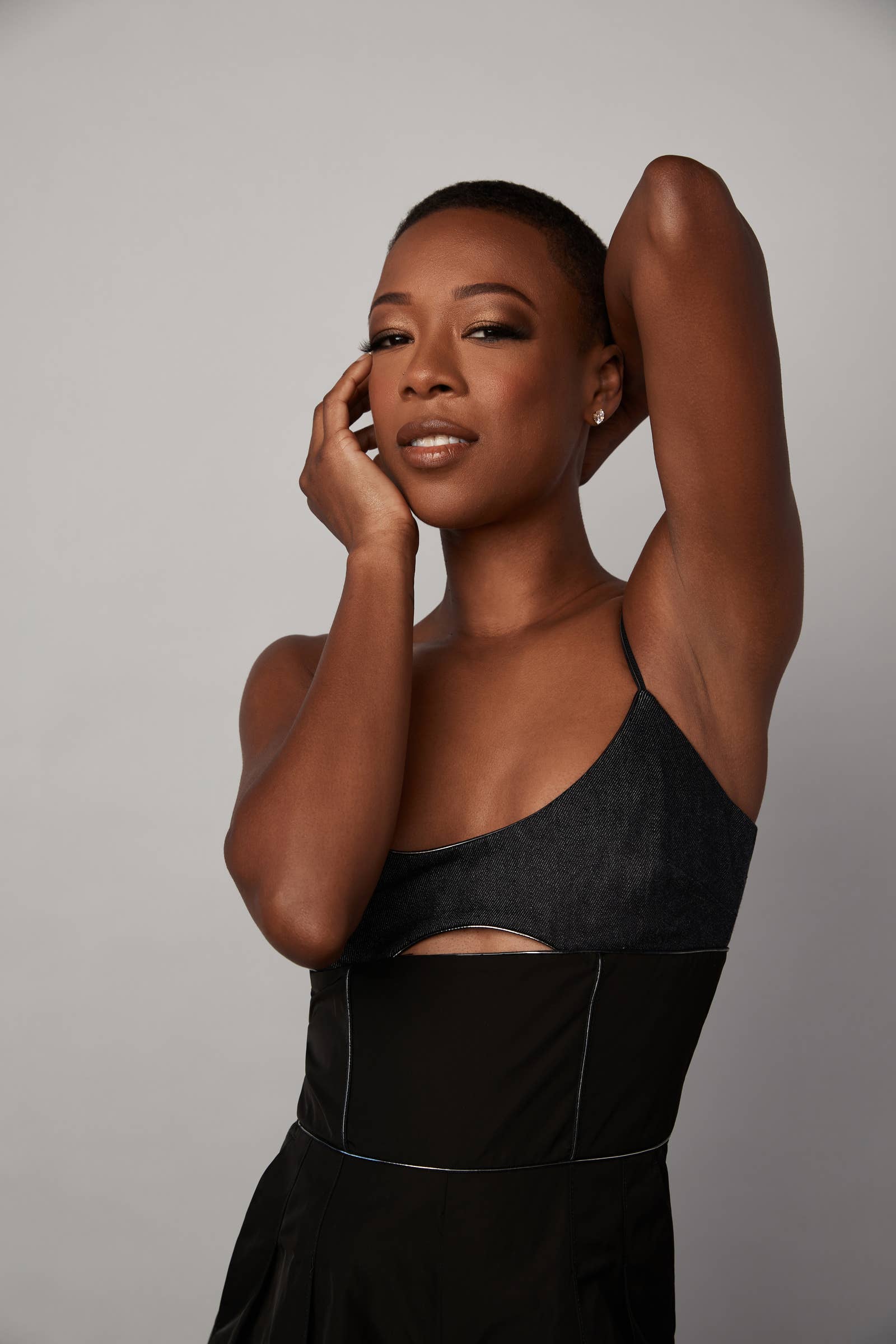
Netflix helped reinvent the way we watch TV when they gave us Orange Is the New Black. Not only were viewers consuming episodes at a faster pace, but it also gave them a different way to connect to the show's characters. And that's just what happened with series star Samira Wiley, who captured the hearts of millions when she stepped on the scene as Poussey Washington. Samira brought a sense of vulnerability to the role that would ultimately allow her to hold a mirror up to her own life and discover who was truly looking back at her.
For BuzzFeed's Black, Out & Proud series, I sat down with Samira to discuss just how transformative Orange Is the New Black was on her life, ways her childhood influenced the way she mothers her daugher, her desire to see more Black joy on-screen, and more!
Editor's note: This interview has been edited for length and clarity.
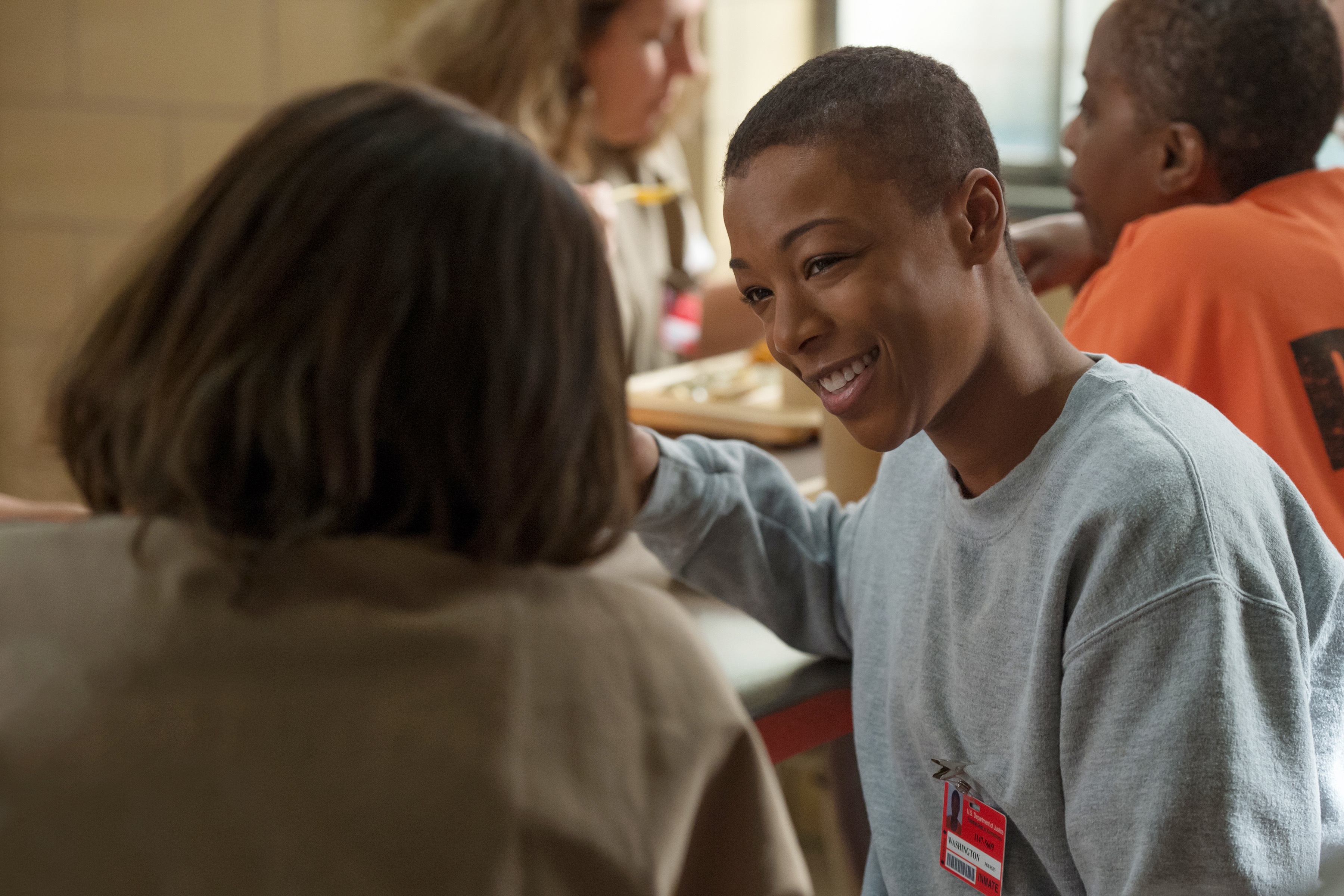
A little over 10 years ago, the world was introduced to you as Poussey Washington, an openly gay inmate, on the hit Netflix series Orange Is the New Black. Looking back, what initially attracted you to this role and what are your feelings toward the character today?
That was over 10 years ago [laughs]? To be very honest, at the time, I was a struggling actor in New York, working as bartender. I had multiple auditions a week. Back then, the only Netflix people knew was the delivery DVD service. I wish that I could say to you that I had discernment and that I really pored over the script, and that I really understood the character was going to be impactful, but really, at the time, I just needed a job.
I'm a firm believer that there's a path for me, and Poussey was on my path. She was supposed to be a part of my life, and that's how I found her. I feel incredibly blessed to have played that character. The impact that she made, not only with the people watching the show globally, but also just personally, for me. Poussey really changed me as a person. There's so many great qualities to her. I always think about what a great, loyal friend she is and how I've specifically taken that trait and tried to apply it to Samira's life.
I'll never be the same because of Poussey being in my life — my career, she's also the reason I have a wife and a family, to be very honest. It's something that actors dream of — to have a role like that, to be on a show as impactful as that. I'm just happy I accidentally fell into it.
When speaking about the character, you once said, “I think falling in love with Poussey, which is a real thing that happened to me, helped me fall in love with myself.” Can you tell me what you meant by that?
I was not an out actor when I first got the role. I don't think many people know that. I feel like people thought I was always out and proud, but nobody knew because I wasn't famous then. But I was really on that path of, do I bring my best friend on a carpet with me one day? You have so many different voices in your ear when you're starting to gain fame, access, and all of those things. And I had some of those voices. I grew up in the church, so a lot of those voices were concerned about what being open would mean for my career and for my life.
I really had to realize and find that my job here is, yes, to act, but also to have this kind of platform. What a travesty it would be if I didn't seize this opportunity to be my authentic self and, therefore, try to have that be infectious to other people. It was really through Poussey, who has always been comfortable with who she is. She's such a beautiful light. Her realizing how bright her light was, I was able to see that, "Oh, this is actually coming from me." I need to accept myself, love myself, and embrace myself and not have these outside voices influence my life.
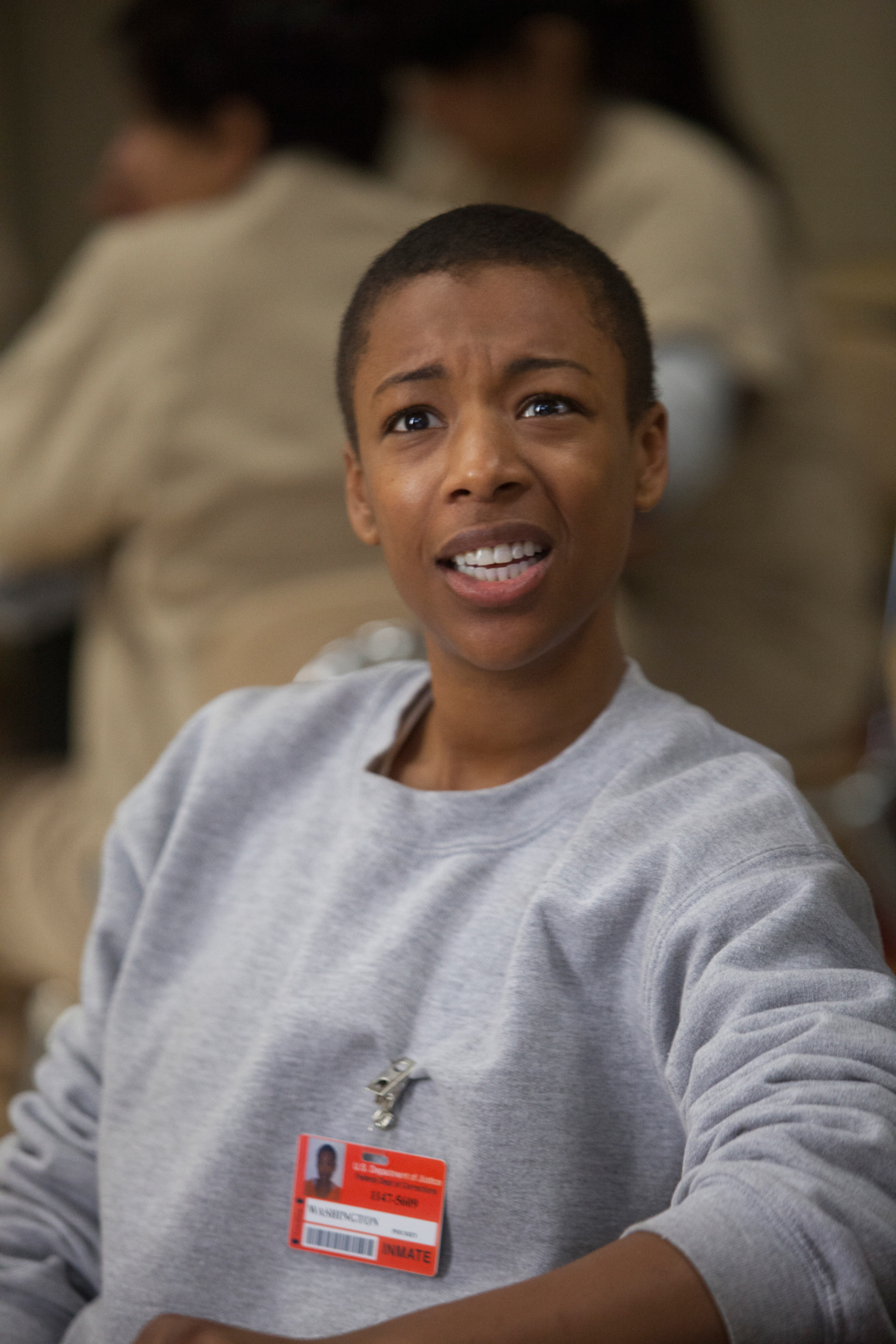
Although your character was out, during those early seasons you hadn’t spoken publicly about your sexuality. You revealed that a cast member accidentally outed you in an interview. Due to the success of the show, I don’t think people fully grasped how scary that must’ve been for you. What’s something people might not understand about the act of being outed? How do you view the situation today?
When anyone is outed by someone else, it can mean so many different things, especially in certain parts of the country and within certain mindsets, it can literally mean danger. But ultimately, even with me, it means that someone took something from you. That was not that person's to give away. To make that declaration, regardless of what everyone might have thought at the time, that was mine. I wasn't able to present it in whatever way I wanted to.
It's just scary, hearing so many different outside voices telling you you're gonna get pigeonholed or typecast — a lot of the fear, I think, comes from the unknown. It was just really, really, really scary for me. Being in the public eye and having my dream of wanting to be an actor...I didn't want any of this other stuff to get in the way. Then I had to realize that the "stuff" getting in the way is actually my path — it's the way to being successful, it's the way to feeling authentic. But that has to be a personal journey. Being able to come out is a huge part of your personal journey. And I didn't have that.
In a previous interview with the Guardian, you said there’s no other choice for you than to pick socially conscious roles — “I’m part of every single marginalized community. I’m Black, I’m gay, I’m a woman. My country hates me! So I do feel like it’s my responsibility, or it’s one that I’ve definitely accepted, to be a voice for all of my different communities.” Do you still feel that way?
Absolutely. I 100% think that is a part of my journey and my responsibility, even. There was, when I was getting cast in The Handmaid's Tale, there was a large part of me still holding on to some of those ideas about being typecast. I had a little trepidation about going out for another character who was queer-identifying. I wasn't gung-ho about it. I was still in this warped mindset that maybe I shouldn't do that, until I came to a realization that not only were none of these characters around when I was younger, but if they were around, they probably would've been played by someone who doesn't actually identify as queer in real life. What a gift it could be, for me as a Black queer woman, to play a Black queer woman on TV.
Having that idea that I would be typecast is completely misguided on my own part, because it comes under the idea that we're all the same. Think about all the Black women in the world, right? They're all so different. I'm so happy that I was able to find my way through that thinking. Now, I see the roles and opportunities that I've been given as a real blessing. I was a kid who had a dream, and I think the only person I really knew growing up was Angela Bassett. I just want to be some queer kid's Angela Bassett. I know all the little kids who wanted to be the president after Obama. I'm not saying I'm Obama, but, I mean, that would be dope. Truly, if one person had a dream that was stifled, and somehow I was able to set that dream free a little bit and have them dream a little bigger, then I feel like I'm doing my job.
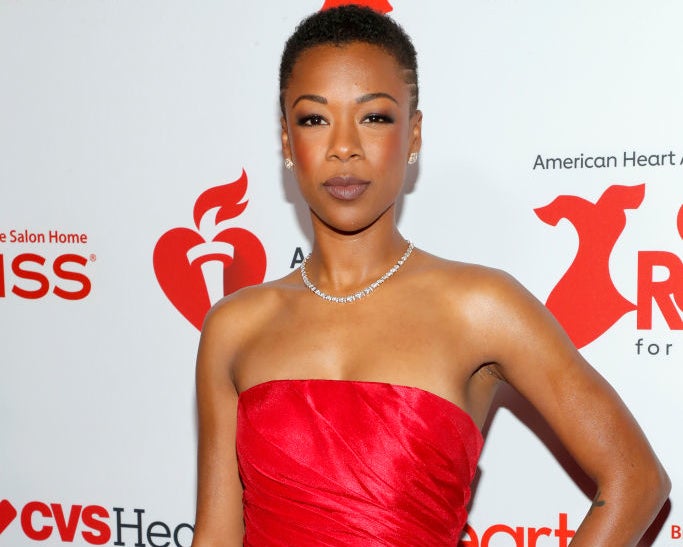
Your time on Orange Is the New Black was very formative for not only your career but your life as well. Love was a product of that show. You met your wife Lauren Morelli there, who was a writer on the show. You two welcomed a daughter named George Elizabeth. You’re about to have a 3-year-old on your hands. What has been the most surprising thing you’ve learned about yourself when it comes to motherhood?
Oh, George is a lot like me! She was born four days before my birthday. She's a real performer. Somebody just gave me a little me to reparent [laughs]. I really understand patience on a different level now. In those early days, I had no idea that poop could do all the things that it was doing. It was wild! But as we moved forward, I'm constantly just purely delighted by her. The things that she says and the way she makes us laugh, it's been awesome. And honestly, it's opened up another way that I see my wife. We're coparenting now, and it's shown me how well we work together.
How has the way you parent your daughter differed from how you were raised? And in what ways have you adopted some of your childhood teachings into your life as a mom and wife?
Great question! I think there are a lot of people in our generation who have stuff with their parents. I hesitate to go into too much detail, because I really do love my parents. They did a great job. But, like...I don't hit my kids for discipline. I feel like I came up in an era where children, especially growing up at the church, you're kind of seen and not heard. I don't think I necessarily felt like a full person until later...after childhood.
It's important for me to see George as her own person. She's a being that I want to respect in this world. I want to listen to her when she's crying, I want to be able to encourage her to speak up for herself, and all of those things. But the thing that I did get from my parents that has brought me to where I am today is, I have always felt like I can do anything — I'm special. They've just always been really supportive in that way. I have a very strong sense of self, and I would love to be able to give that to George as well.
What keeps you hopeful about the future for Black and queer people?
Gen Z. I have a nephew, he's 22 and also an actor [Samira's nephew is When They See Us and This Is Us star Asante Blackk]. I'm always challenged by his thoughts and his thought process and how he thinks about the world. I forget the statistics, but it was, like, some wild percentage of Gen Z who identify as queer. They're just fluid AF! They make me hopeful. I want to learn from every generation. I want to be able to understand the way they're thinking, because I do feel like there's some new era coming in.
What do you want your contributions to Black history to be?
Wow, that is a question I never thought anybody would ask me. Growing up, I went to an all-Black school, almost my whole life before college. My school was so entrenched in Black history, so making contributions of my own was something I've never really thought about. I want to be known for my authenticity. I want to be known for my genuineness. I want to be known for my excellence in my field. I just really want to be an inspiration — I want someone to be able to look at my life and have an acceptance moment or an I-can-do-this moment.
I don't really have a bunch of dreams about being an EGOT. It's not really about that. Those kinds of rewards are great, but they're also political. One thing I was told is, "Whether you get a trophy or not, your work is the same." So, those for me aren't as important as remembering the person that I am and how I moved through the world.
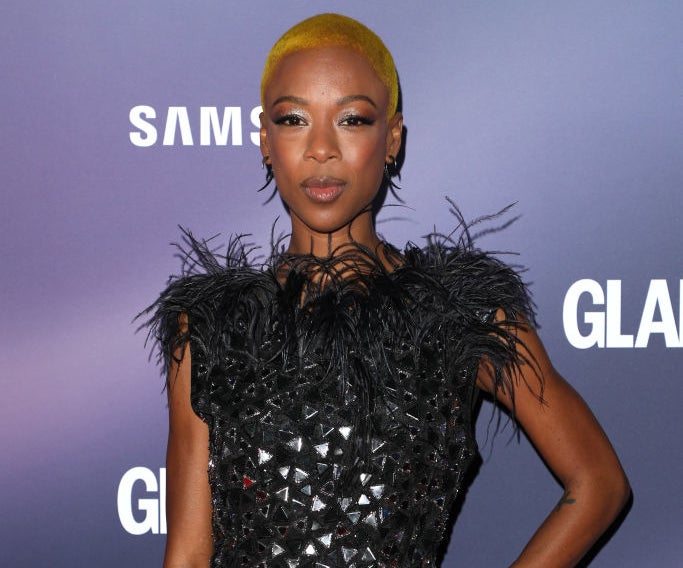
Okay, I want to get into a few questions about your experience as a Black queer woman, both in life and in your career. Who was your first queer crush?
I do remember seeing Aaliyah back in the day, but there's a part of me that's like, "Did I want Aaliyah or did I want to be Aaliyah?" I didn't know that I was queer until I went to Juilliard. I was, like, 19, and it was the first time I moved to New York. You had these dancers walking around all the time with different amounts of clothing.
That's also where you met Danielle Brooks, right?
Yes!
Did you have a Black queer fashion icon growing up?
I really didn't. I mean, at the time I was so confused. I would probably pick Bow Wow.
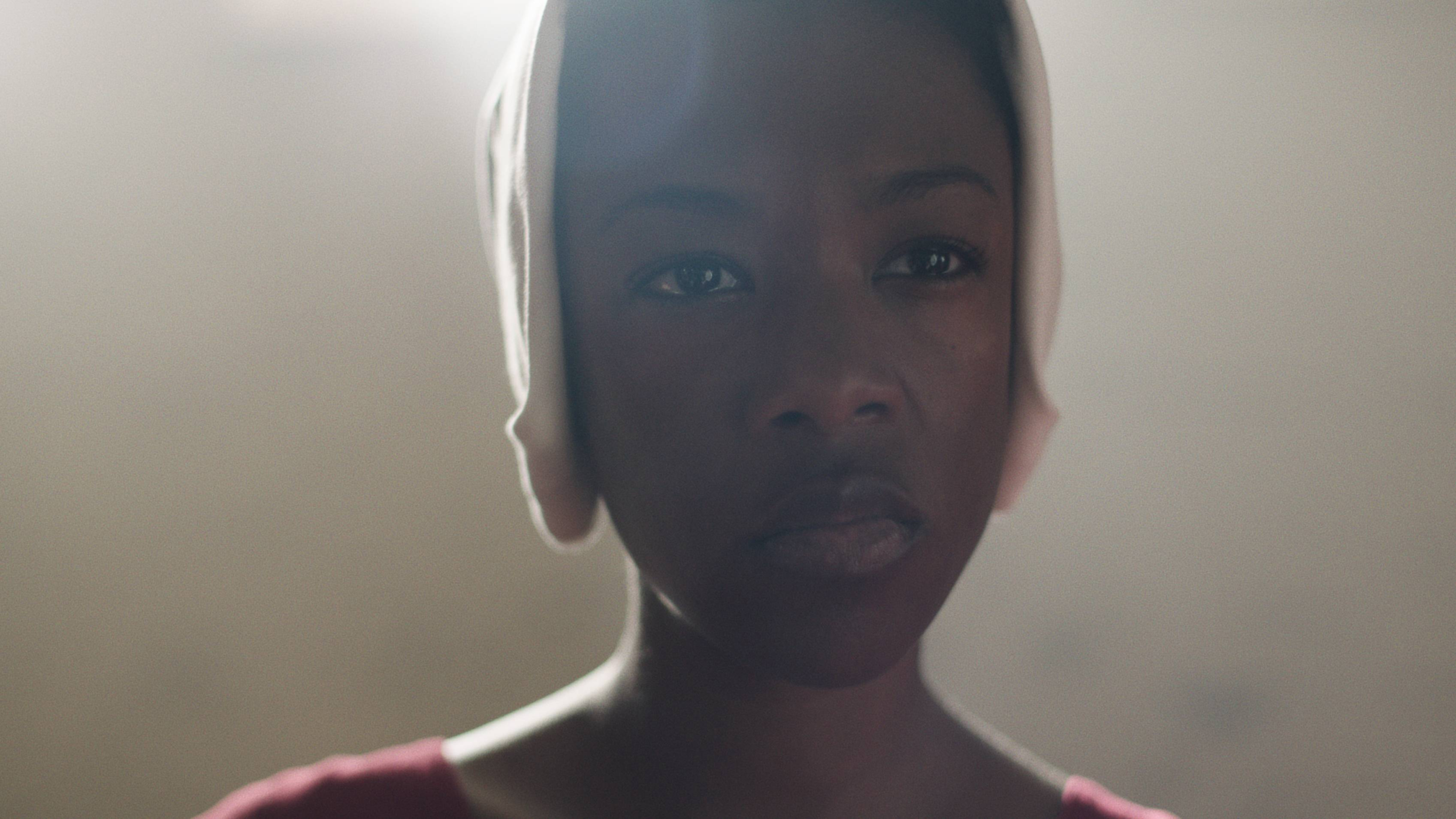
What has been your proudest moment being Black and queer?
Probably when Lauren and I got married. Martha Stewart Weddings wanted to have us be their first queer couple featured. We weren't originally interested in it. We already had a very small guest list, and I just couldn't see why we needed to give that part of ourselves away. There's a line between what we keep private and what is public. Then we thought about how maybe someone has never seen two women walking down the aisle before, so we did it. I did something that was out of my comfort zone, but somehow right in the middle of what I think my purpose is.
What are your hopes for Black queer representation?
I just want us everywhere. I feel like we're in an era where there's real consciousness in trying to cast queer people in queer roles. I also want queer people to be able to play their straight icons. I just saw this A24 movie a couple of nights ago called Love Lies Bleeding. I saw it, and I wouldn't call it a queer story. It's just their story. That's just who they are. It's not a point in the plotline, it's not some struggle. I've never seen anything like that before, where their sexuality isn't the central thing we're talking about. And this was set in the '80s, too. That was super refreshing to just see people who identify in the same way that I do in terms of orientation, and they're just out here existing instead of making their sexuality the main focus. I'm done with queer tragedy stories, and I'm done with Black tragedy stories.
I don't want to do a slave movie. I don't want to see us getting hosed down and all that stuff. I'm just like, "Can we tell these white people we've got joy?" We should be able to see those images. I laugh in a different way when I'm with Black people...there's a different kind of smile. It's just understood. I'm tired of seeing so much tragedy when it comes to Black and queer stories. Do we experience pain? Of course, but that's not the entire experience. I want to see more of just living.
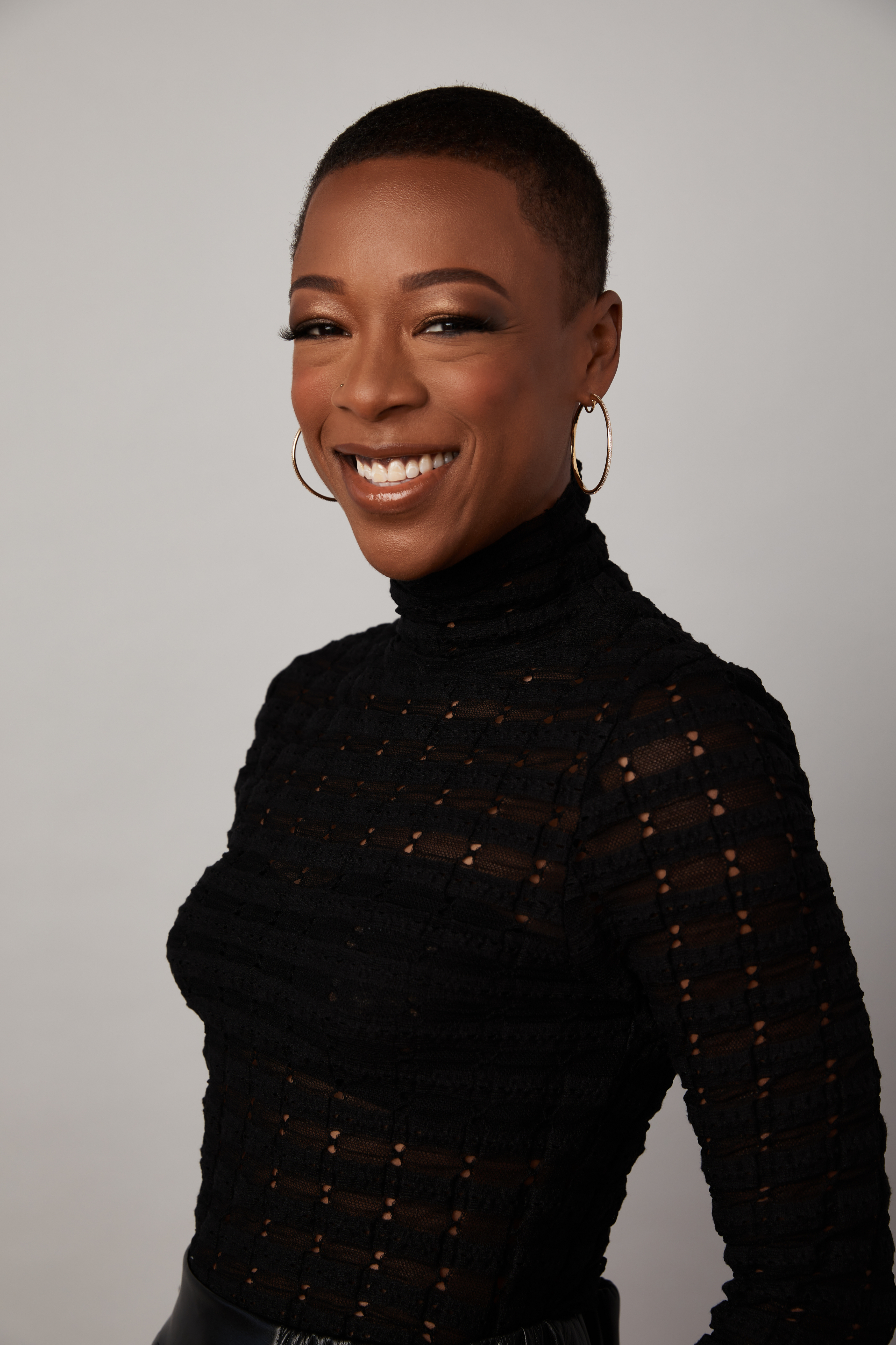
I'm right there with you! That's another reason why we wanted to do this project, because we wanted to step away from the pain that's associated with being Black and queer — not in an attempt to ignore those stories, because they're important and they're real, but we just wanted to celebrate queerness and Blackness together. I want to see us in more roles about romance, friendship, wild adventures, hell, even magic. Can you imagine something like a Black Harry Potter?
Yes, I'm right there with you. Those stories are real, and there was a time when we really needed them — and I'm not saying that time has gone away, but it's all about balance.
Lastly, how much progress do you think has been made for Black LGBTQ+ people?
The progress that I have seen in the time that I've been here has been great. It's just taking too long, in my opinion. It's painful when something takes that long — when you have generations who need to do something and never see the mountaintop, as MLK would say [laughs]. To be very real, this question sometimes bothers me, specifically for me, because the path that was laid out for me is, like, the easiest path ever. I have been on set with mostly women for my entire career, because of the shows that I'm on. I feel like sometimes I can't do this question much justice, because I don't have a felt experience of my some of my sisters out here — real stories of struggle and really understanding. I kind of felt like I had a bit of a silver spoon in a way. I was really shielded from those kinds of experiences. I feel like I'm doing us a disservice sometimes, because I don't want the narrative to be like, "Everyone is out here like Samira." I understand that my circumstances are extraordinary.
I completely understand! Samira, thank you so much for speaking with me. It's been a pleasure. You can learn more about Samira Wiley here.
And be sure to check out the rest of our Black, Out & Proud interviews.


